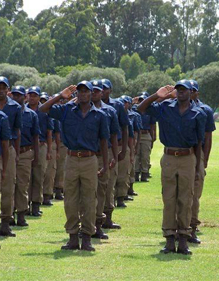
2 April 2012 – When a municipality, with a suspended deputy police chief and maladministration probe hanging over it, dissolves its anti-corruption unit, some uncomfortable questions have to be raised.
Particularly when it appears that staff are also being intimidated.
The Tshwane Metro Police Department (TMPD) has found itself trying to explain why it informed its 67 anti-corruption unit members late in 2011 to relinquish their metro police officer status and surrender their uniforms. The unit was dissolved in March 2012.
Tshwane metro spokesperson Console Tleane told the media in December 2011 that the municipality was hopeful that an inquiry would expose the staff members responsible for leaking information to the public on “sensitive” investigations, and on the plight of the unit. He said the “net is getting narrower”.
So effective is the intimidation that that a source, approached by Corruption Watch for information on the disbanding of the unit and the unit’s performance, refused to discuss the matter on the phone, insisting that it would not be “safe to do so”.
The person asked instead for a face-to-face meeting at a place of their choice.
The unit was set up to probe corruption, theft and other crimes within the TMPD. It’s alleged by those close to the unit that some investigations implicating municipal officials were leaked in 2011, making the unit a liability.
South African Municipal Workers Union spokesperson Tahir Sema said on 30 March 2012 that he was aware that allegations had been made by metro police members about corruption and nepotism. He said it was not clear if that was only within the department.
Acting metro police chief Steve Ngobeni is adamant the decision to disband the unit was one of good governance.
According to the TMPD the unit was ineffective, with some of the cases it was still investigating going back as far as 2009.
Those close to the unit, which was believed to be investigating about 600 cases, think it might have been too effective, which led to its demise.
One of the cases involved a relative of a senior police metro official.
Karen Meyer, Democratic Alliance spokesperson on community safety in the council, believes that delivery by the unit was hampered by top management and that it will have an impact on corruption investigations.
Most of the officers were stripped of their ranks and moved into the office of the municipality’s chief audit executive, others returned to jobs as metro officers.
The heat is on for Tshwane and its metro police department following the announcement in 2011 of a probe ordered by President Jacob Zuma into allegations of mismanagement and maladministration by the metro and the suspension of the TMPD’s deputy police chief Ndumiso Jaca.
Jaca was suspended over his use of false number plates on two of his vehicles. An internal inquiry initially found him not guilty.
The TMPD has alleged the unit selected only the cases that made it look good and that some its operations were illegal and fell outside its mandate.
Members say the number of TMPD members facing criminal and disciplinary hearings speak for themselves.
It’s alleged that a new unit is being considered to replace the previous anti-corruption unit, but this has not been confirmed by Corruption Watch, and there is no indication how this would function.
The probe ordered by the president into the Tshwane metro is looking into how personnel were appointed, as well as mismanagement and wastefulness, mismanagement of finances and interference into disciplinary affairs.
Special Investigation Unit head at the time Willie Hofmeyr informed parliament in February 2011 that he was investigating 65 officials who have interests in companies doing business with Tshwane metro and are receiving payments from transactions.

